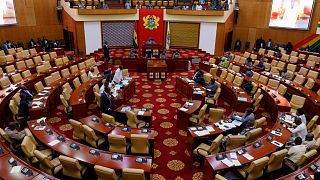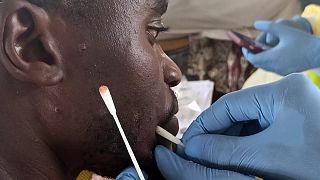Ghana
Ghanaian traders have expressed their concern about a possible tax on sugar- sweetened beverages, an intervention proposed by the World Health Organization aimed at reducing the increasing cases of chronic diseases including diabetes,cardiovascular diseases and obesity.
A sugar policy, which could dissuade people from buying large quantities of fizzy drinks is set to go to cabinet for approval by next year in the West African country.
But, traders say the proposed tax will throw them out of business, recommending a reduction in sugar content instead.
“I don’t think that tax is going to help. If I were to be asked, I do think that grams of sugar, the quantity and the percentage of sugar input in the drinks has to be reduced,” said a middle-aged woman, who sells fizzy drinks at a busy local market in Accra.
As at 2013 Ghana recorded over 500,000 people living with diabetes. Out of every 1000 Ghanaian adults more than 200 people live with the disease. Health workers in the country say the shift from traditional dietary habits has resulted in far-reaching health problems.
The nutrition unit of the Korle Bu teaching hospital says Ghana’s situation goes beyond sugar intake.
“Traditionally we take a lot of vegetables, but we see that these foods are low in fibre, so people are not eating enough vegetables and all that .There is this thing about taking sugary drinks, but i would say mainly it is because people are shifting from whole foods, whole cereals to more highly processed foods and that is what is bringing a lot of people here,” said Dr. Doreen Osafo, a Nutritionist at the Korle Teaching Hospital.
Dr. Francesco Branca, director of WHO’s Department of Nutrition for Health and Development says no one needs sugar in their diet insisting nations must take the proposal seriously.
While Ghana expects that its current sugar consumption that stands at 463,000 metric tonnes will increase to 872,000, one wonders how the WHO proposal will play out.
The WHO says while nutrition education and other behaviour-change interventions designed to decrease consumption of sugar-sweetened beverages have been effective in reducing intake at an individual level,widespread and lasting behaviour change may be difficult to achieve in adults.
Odelia Ntiamoah, Correspondent













Go to video
Evacuations begin: African citizens caught in Israel-Iran crossfire
Go to video
Ghana's former finance minister place on Interpol Red Notice list over corruption allegations
02:10
Accra city authorities renew battle against roadside trading
Go to video
Ghana moderators sue Meta over harm from reviewing extreme content
Go to video
Ghanaian Catholics gather for requiem mass in Accra in honour of Pope Francis
Go to video
Ghana: Tensions rise as chief justice Torkornoo suspended